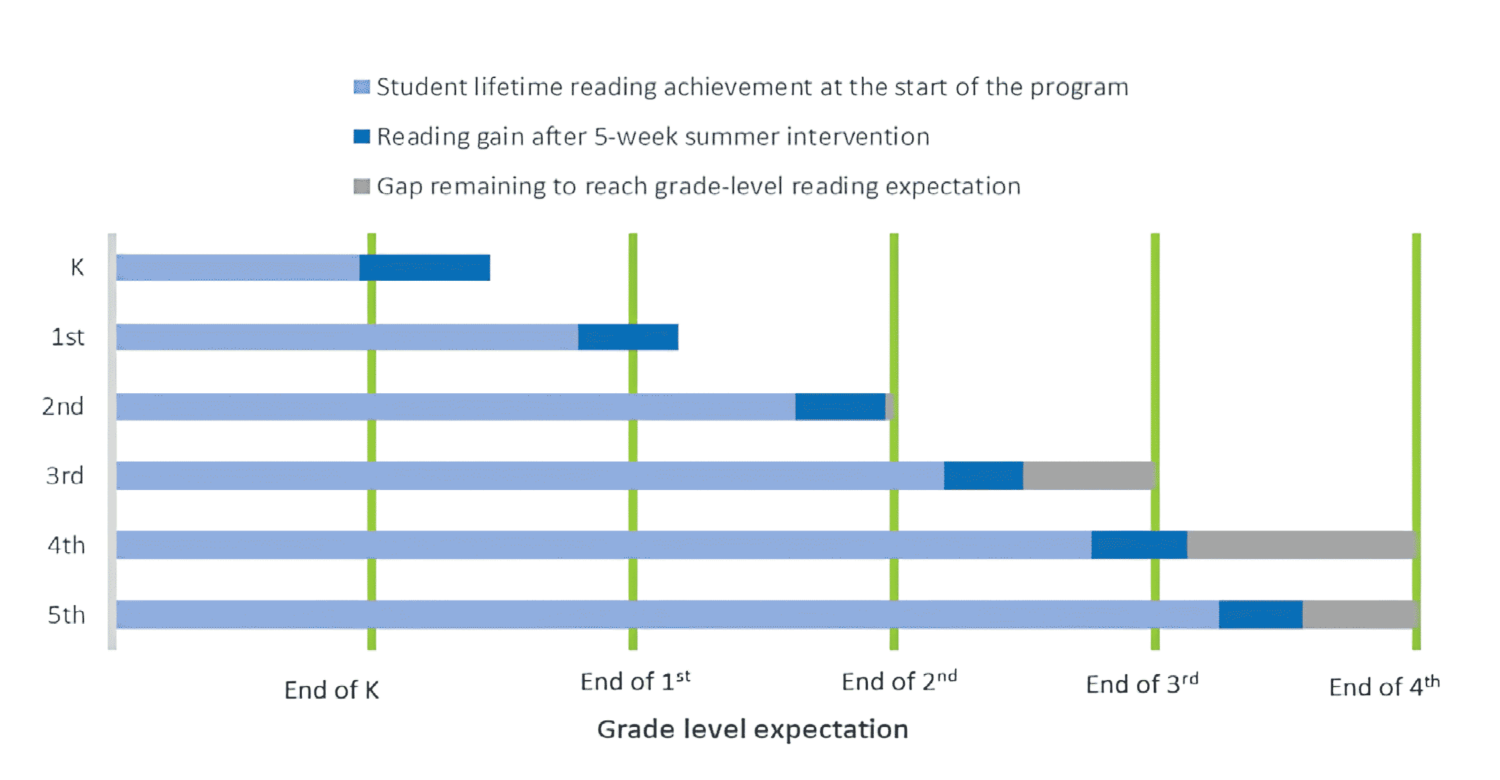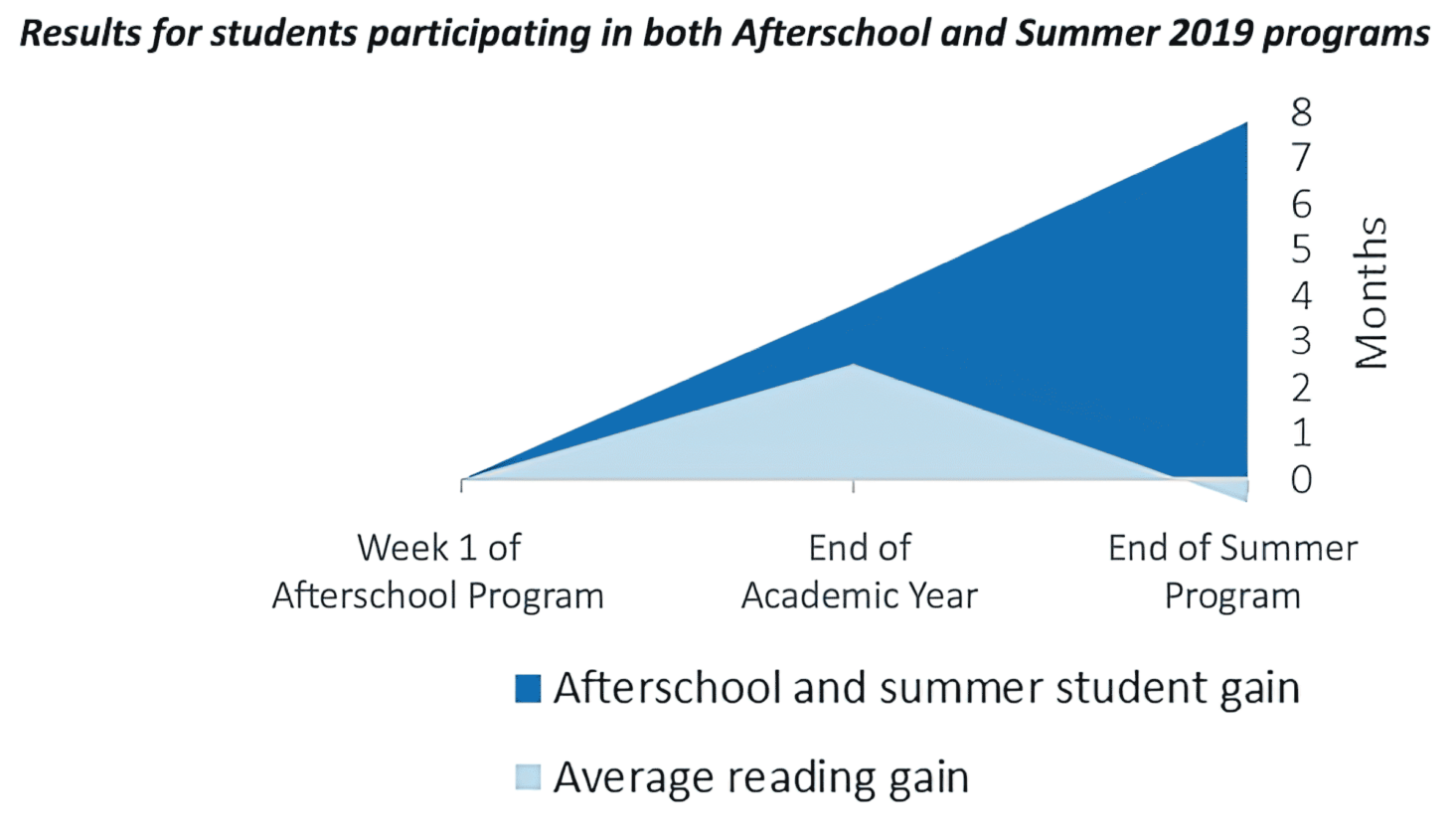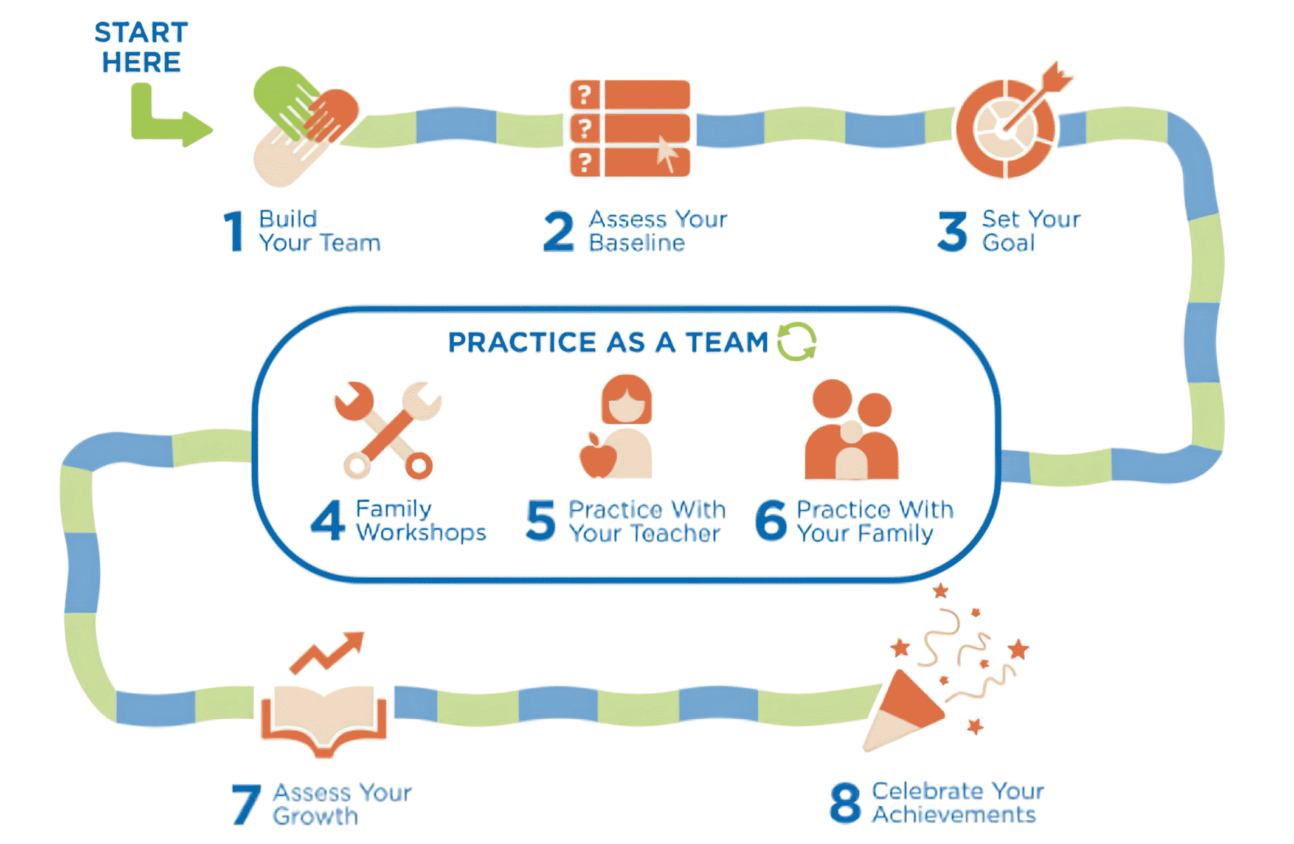Baltimore City Public Schools: Fighting the COVID Slide by Equipping Families to Teach Reading at Home

Amidst school closures on a massive scale, families are schools’ and systems’ greatest allies and assets. Districts must work with them and through them, or else the achievement gap will continue to grow with every passing day. Springboard Collaborative and Baltimore City Public Schools (City Schools) have teamed up to help families and teachers support learning at home in innovative ways.
City Schools had 168 total schools with ~80,000 students enrolled during the 2019-20 school year, including 40,682 students in preK-5, 17,431, students in grades 6-8, and 21,074 students in grades 9-12. Starting in the the 2017-2018 school year, City Schools engaged hundreds of stakeholders—both local and national—to learn best practices that would help shape the future of the district. These learnings formed the basis for Building a Generation: City Schools’ Blueprint for Success.

PRE COVID-19
In 2018, partnering with Springboard Collaborative, a nonprofit that closes the literacy gap by bridging the gap between home and school, Baltimore City Public Schools embarked on its ambitious Blueprint For Success. The Blueprint outlined three areas of focus:
- Student wholeness
- Literacy
- Staff Leadership
In support of these focus areas, Springboard and City Schools partnered to build the district’s capacity in four key ways:
- Help kids become stronger readers. Through Springboard’s 5-week Summer and 10-week Afterschool programs, participating City Schools students achieved an average 4-month reading gain, closing the gap to grade-level performance by more than half. During each session, between 60 and 120 students from grades PreK-4th participated in Springboard programs, which ran for 4 hours a day in the Summer and 1 hour a day after school.
- Equip parents to teach at home. Weekly family workshops averaged 91% attendance. City Schools parents learned to be effective one-on-one literacy coaches at home, and they built habits that persisted beyond programming.
- Develop teachers’ instructional practice. City Schools teachers who led Springboard programming participated in Professional Learning Communities on differentiating instruction and engaging parents. They also received coaching toward a professional growth goal of their choosing, helping them to improve their instruction even outside of programming. City Schools teachers grew in their practice, especially around differentiated teaching based on clear assessment data and guided reading.
- Deepen the school leadership bench. At each school, a teacher-leader was hired from within to be the Site Leader, and Springboard coached them through the management experience. Since the partnership began, a handful of Site Leaders have risen to district-level positions where they provide literacy coaching to a cluster of schools. These teacher leaders have helped build and maintain a culture of family engagement within their schools and across the district.
The partnership between Springboard and City Schools has demonstrated some of Springboard’s strongest results nationally. During the first summer of partnership in 2018, City Schools students replaced the typical 3-month summer reading loss with an incredible 4.3-month reading gain. (Note that all data presented here is based on pre- and post-program assessments administered by district teachers. Data was then summarized by Springboard staff and measured against growth benchmarks set by DIBELS.) Soon thereafter, word spread and additional school communities joined the next round of programming during the academic year. Students who participated in the 2019 Afterschool program averaged a 4.1-month reading gain in just 10 weeks.
In the Summer of 2019, the number of participating schools grew to 17. Springboard and City Schools were delighted to learn that the majority of seasonal program staff (leaders and teachers) were returning to their posts. Results in the Summer of 2019 echoed the previous year’s trends, with more than 1,000 K-4 students replacing summer reading loss with a 3.9 month reading gain. Furthermore, participating K-2 students caught up to grade-level expectations—on average—in just 5 weeks.
Summer 2019 Results

Taken together, those students who attended both the 2019 Afterschool and Summer Springboard programs experienced the greatest gains with an average total reading gain of 7.8 months.

The multi-year partnership between Springboard and City Schools has enabled teachers to strengthen their practice around family engagement and differentiated literacy instruction. This has woven parent-teacher collaboration into the fabric of the school system.
And then COVID brought schools to a grinding halt…
DURING CORONAVIRUS: THE SUMMER OF 2020
The 2020 round of Springboard Afterschool was to be the largest implementation yet, with 23 schools participating. After months of planning and training, the program was set to launch on March 16, the same day that Maryland Governor Larry Hogan announced that City Schools would begin its closure. Though programming could not proceed as planned, Springboard and City Schools recognized that at-home learning was as pressing a need as ever.
In order to support school communities in Baltimore—and across the country—Springboard reflected on how best to equip parents and teachers to support learning at home. They analyzed what made their existing programs successful (in Baltimore and nationally), and the result was the Family-Educator Learning Accelerator (FELA) methodology, a framework that can be implemented either in-person or virtually. FELAs are 5-10-week cycles during which teachers and parents share a game plan to help children reach learning goals. The process measurably improves academic outcomes while strengthening family-educator relationships.

To best serve Baltimore’s most at-risk students—namely, those in low-income communities—Springboard is working with City Schools to apply key lessons learned within this new virtual environment:
- A program shorter than five weeks isn’t long enough to build a habit; any longer than ten weeks, and the immediacy and urgency required for teachers and parents to try something new together is lost.
- Relationships are foundational. The key to achieving 90%+ parent turnout at weekly family workshops is building relationships between teachers and families through [virtual or in-person] home visits at the outset.
- During that initial meeting, teachers also measure the student’s baseline and set a growth goal. Goals are the glue that hold everything together and make the program winnable.
- During the 5-10 weeks, it’s all about practice, practice, practice. Kids practice with their teachers, kids practice with their families, and the teachers + families practice all together.
- Finally, the cycle concludes by measuring progress and celebrating; it is neither amorphous nor interminable. Small wins lead to big wins, helping schools to crystallize new habits between teachers and families.
Because of COVID-19, Springboard transitioned from implementing an in-person program alongside City Schools in favor of a new Springboard Learning Accelerator model (SLA). Whereas FELA is the underlying methodology–which is open-sourced and free for all to use–SLA is our ‘starter kit’ for implementing a FELA in literacy (including training, materials, curriculum, etc.). SLAs can be implemented virtually or in-person, and adapted for full-class implementation, small group interventions, or even OST contexts.
Fourteen school communities in Baltimore City are currently participating in virtual SLAs which have been customized to meet their needs. Building upon the student-teacher instructional component of SLA, City Schools included a daily whole-class meeting and mini-lesson in addition to both small group and one-on-one virtual instruction throughout the week.
TOP 5 PRINCIPLES GUIDING THE WORK MOVING FORWARD
As Springboard and City Schools plans thinks about its partnership moving forward, we’re keeping these 5 principles top of mind:
- Teacher-family collaboration is paramount. Getting families, students, and teachers in the habit of working together from the very first day of school will be key to the collective success of all parties. This should be foundational to any approach.
- Simplifying implementation is key. Stressors are high, the complexity of solutions needs to be low.
- Structure and systems help both teachers and families. SLAs provide tidy 5-10 week cycles, with clear start and end dates. Repeatable weekly actions can help to ease user anxiety while the incentives inspire the push towards the finish line.
- Customization will be critical. The rapid shift to distance learning has reinforced what we’ve always known: users have different needs and aptitudes. We will consult with each school leader to ensure SLA implementation conforms to their unique schedules, tech access, and rostering methods.
- Integration is essential. Instructional integration with the district’s assessment and PD calendar will also need to be addressed so that SLAs amplify existing efforts, rather than feeling disassociated. While our consultants will stand side-by-side with school leaders to co-construct a viable plan (and consult as the program unfolds), schools must prioritize up-front planning time to integrate successfully..
If there’s a silver lining in the way that the pandemic brought schools to a grinding halt, it’s that America has a once-in-a-lifetime opportunity to reinvent school. Amidst the uncertainty, we believe in one constant: schools will need to capture educational value from the time children spend at home. Otherwise, COVID-19 threatens to deepen inequality for an entire generation of children.
Andrew Karas is Springboard’s East Coast Executive Director. Before joining Springboard, Andrew taught middle school in the Bronx and led Teacher Effectiveness projects for NYCDOE. | a.karas@springboardcollaborative.org | @springboardNTL
Transcend supports communities to create and spread extraordinary, equitable learning environments.

